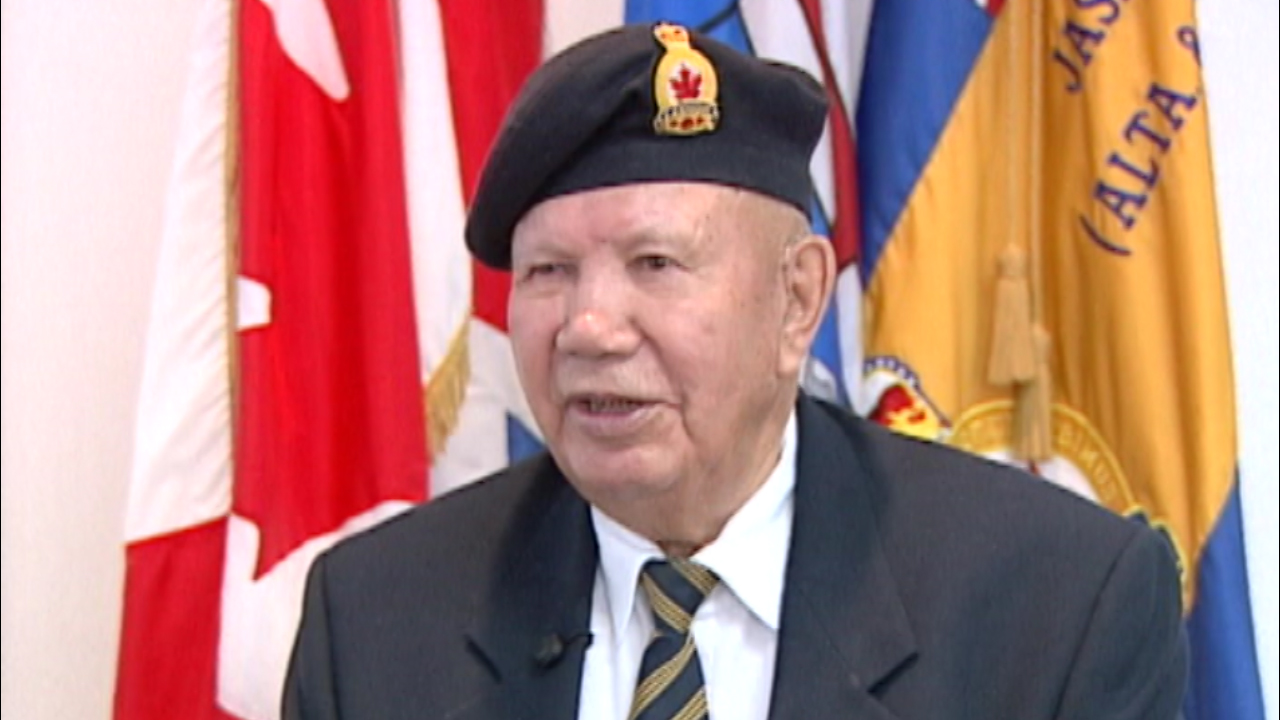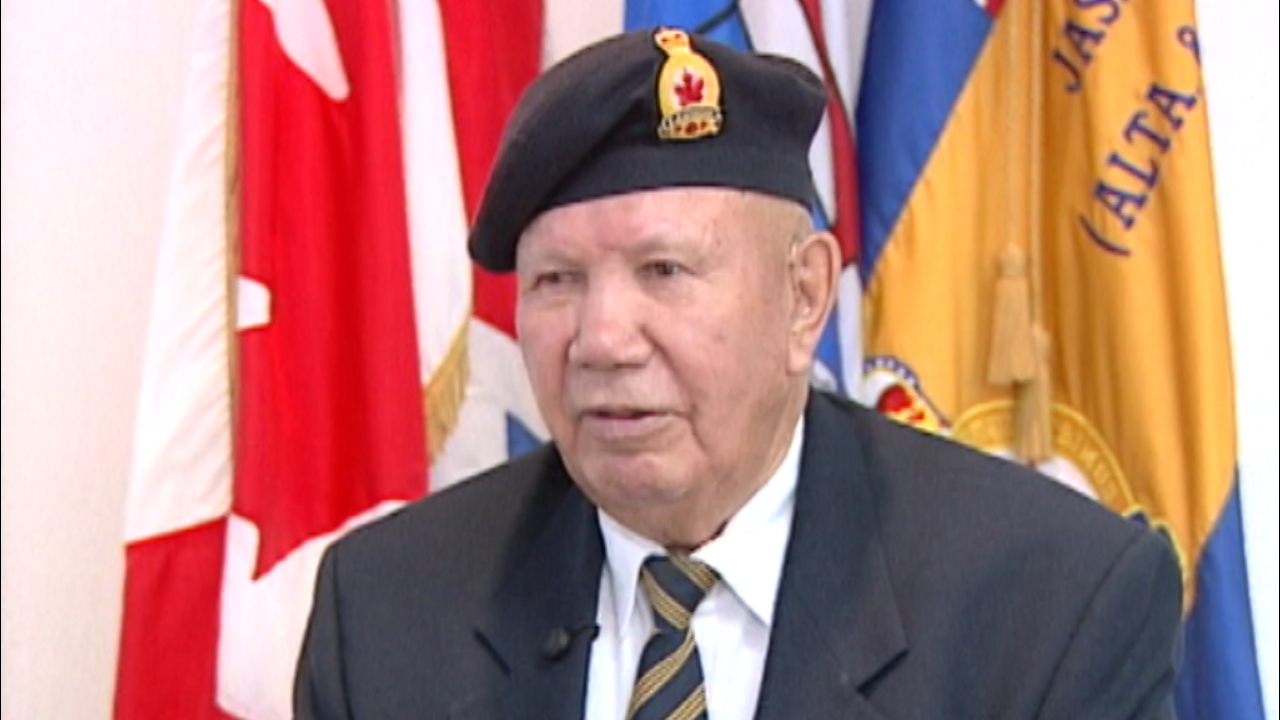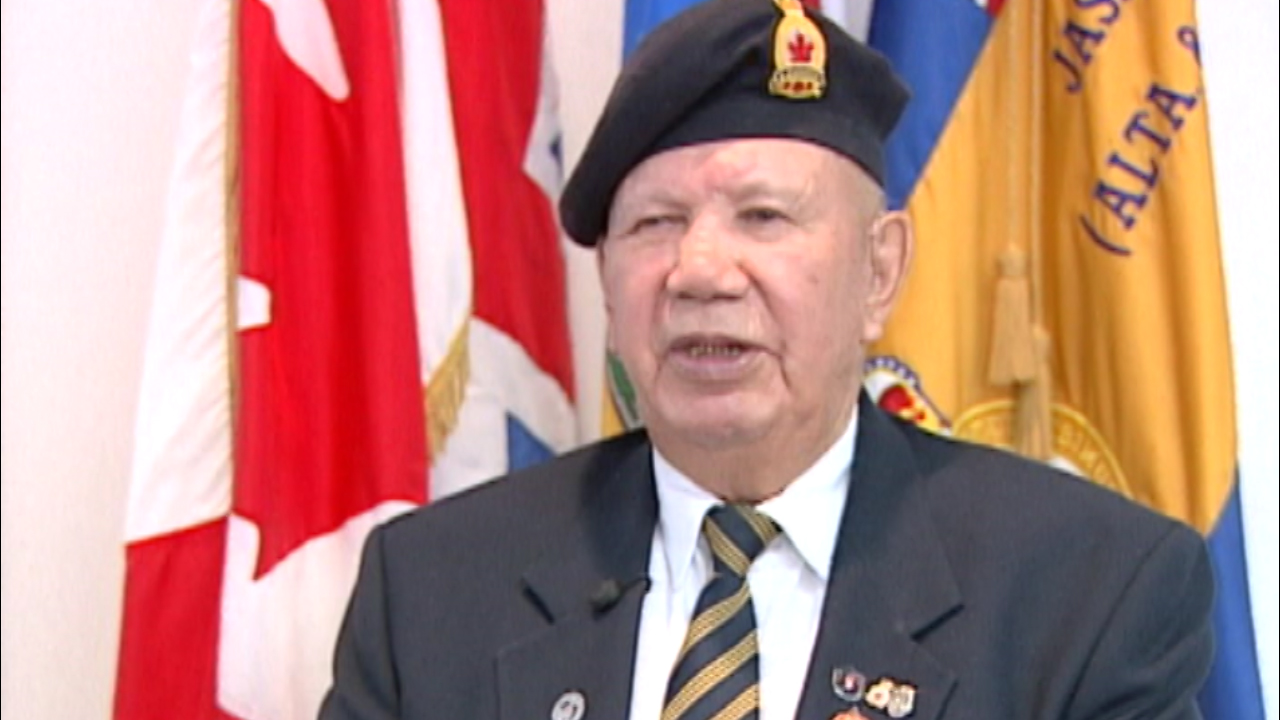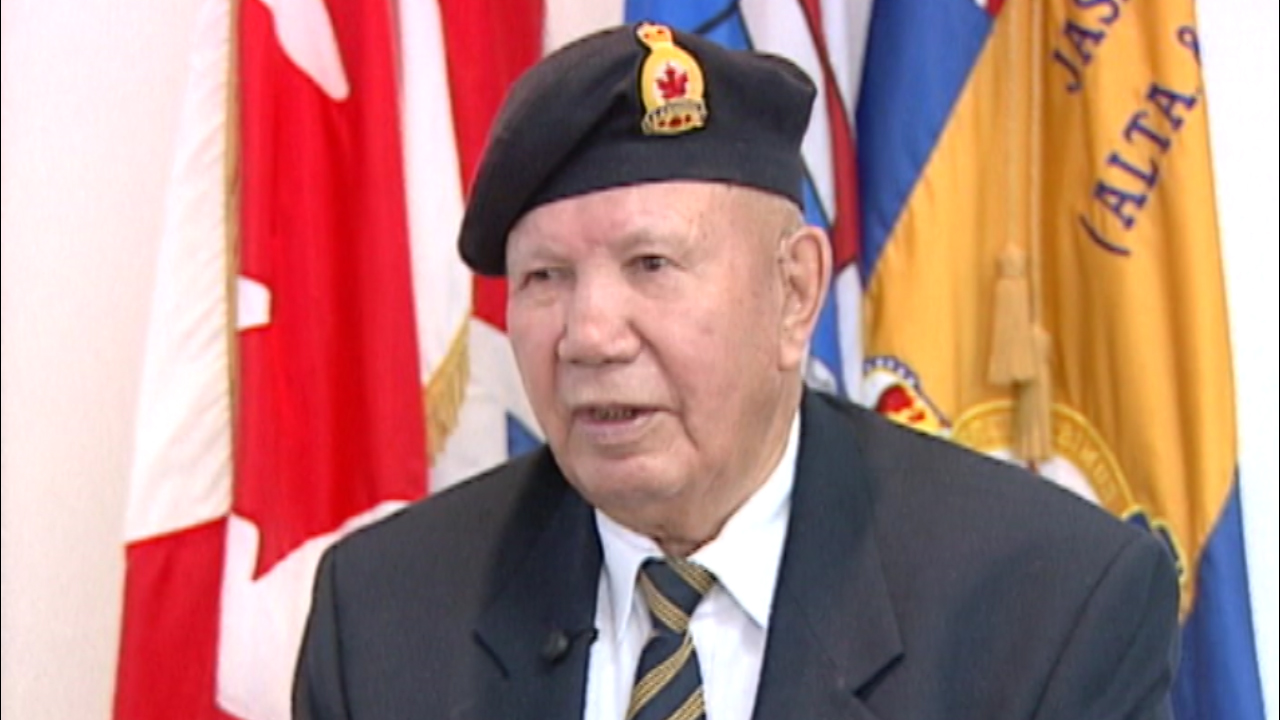Engineer Duties
Heroes Remember
Engineer Duties
Transcript
There were times where the, on the static front, like in Ortona,
we were there five months on static front. There was times at
night, that we had to go ahead of the infantry to clear the
mine fields, we had white capes and all we had was bayonets,
to ya know, check these mine because some of the shoe mine's
were so square and ah, had 8 ounces of explosives in it and no
mechanism, you couldn't detect them, unless you used a bayonet
to prodder eh. You went along, you rolled a couple of tapes,
right tapes, so the people could, you clear a path eh.
Then if there was any barbed wire, well you stuck bangle, or a
torpedo a piece of pipe with an explosive in it and you set it
off to clear the way. Interviewer: You talked about shoe mines.
These are German anti personnel mines? Yes they are.
Interviewer: Tell me how they worked?
Well there were, there was a little box, a wooden box. Had eight
ounces of explosives in it, in the little box, and the mechanism
was plastic, so you couldn't detect them. And when they were set,
they were set half open, and ah, they were put on the path.
Or even in the slit trench or anything where you jump and one of
them would blow your foot off. It wouldn't actually kill you,
but it was enough to, you know, there was a lot less people
that died after, after that, the after effect. But ah, ya know
they were demoralizing. When the people - one or two of them
stepped on a mine when they were going through a place,
everybody backed away but we would have to go on and clear them.
Interviewer: Tell me Mr Berard doing that, you've indicated
that you'd be doing that often at night?
Yes.
Interviewer: And the only way you could detect those mines
was with a bayonet?
Yes.
Interviewer: Prodding into the ground?
Prodding into the ground, yes. And we had to pick 'em up by hand,
and ah, dismantle them eh. As long as there was a push or
release eh, as long as you were on the side of them it's okay eh,
as long as you didn't put too much weight on top of them. It
was just enough to secure that pin ya know.
Interviewer: Mr Berard this would be very dangerous work, you'd
always be concerned about patrols that might stumble on you?
Well the patrols, yes. We, in fact I got to be a section leader
in this league. And ah, I remember one night I went in and I ran,
we were laying shoe mine's, we were laying shrapnel mine's,
a canister like that and it had trip wires on it and every guy
had one in each hand and carrying them, you know. We're going to
the front. We had an escort there, the Vandoos eh.
We ran into a fighting patrol and ah, I remember they started
shooting at us and I jumped into a house and ah, I lost two guys
that night, taken prisoner and in order for me to get outta the
house... I could hear the German's beating,
I had to throw a couple of hand grenades and it was in the winter
time and what saved me was, it was icy outside and when I hit
that door I fell flat on my back and the shooting went right over
me. And I took off and that. But there were cases like that,
you know, they'd go on at night and it was pretty scary.
Interviewer: Mr Berard, many of these mine fields that you men
and the engineer's were to clear, would of course be in plain
site of the enemy and they could bring
down fire on you at anytime.
Oh yes, oh yeah we had to you know, yeah it would, because
they seen anybody else there, they'd ya know and ah, it was
pretty scary, ya had to be careful.
Interviewer: Tell me Mr Berard do you remember the first time
that you went into action?
Yes.
Interviewer: Do you remember how you felt that first time?
Well, the shelling wasn't too bad, because there was a hell of a
lot of noise and all that, but when you run into a fighting
patrol, shells are flying and people are shooting at you.
I'm telling you, you move. It got scary, but I more like expected
it you know, but I had, we were careful, you had to be
careful you know and ah, same as at night when the patrol went
in, if you were to hear any small arms fire, you knew what and
who was there. Because of the sound of every rifle and every
machine gun has a different noise. You hear any shooting or
we knew it was Canadians any other shooting we knew it was
Germans. You had to get used to that.
Interviewer: After the first time that you been in
action you had a real good idea of what to expect?
Oh yes.
Interviewer: The second time it would have been
a little more difficult, I presume?
Oh yes it was, yeah, and we'd go in a place that had
map reading and go down the road and cross the road and I had to
go there and clear the mine field, because the tanks were going in the next morning and I got so good at that map reading that there were times there that I went there at night and could find it, because it seemed to me, I don't know why, maybe because I.... it was times there that, it seemed that I had been there before. I had a funny feeling eh. Yeah and there was times there I would say there's a cross road there's a house. I knew where I was going, it's a funny thing eh. That happened to me twice. Interviewer: Had you ever studied map reading before you got to Italy? Not very much, just road maps and all that. But you know they pin point the contours, and different types of lands and the crossroads, something different again. Interviewer: Did your hunting and trapping experience help you in any way? Oh yes lots, sleeping out at night and toughing it out. Walking all day that was, to me 20 miles to walk was nothing.Description
Mr. Berard outlines his duties as part of the Royal Canadian Engineers.
Robert John Berard
Robert John Berard was born in 1921 in Tofield, Alberta, son of a farmer, with five brothers and three sisters. In 1941, he enlisted in the Edmonton Fusiliers and was sent to Scotland in June 1942 as part of reinforcements for the Regina Rifles. He joined one of his brothers with the Royal Canadian Engineers in Sicily.
Meta Data
- Medium:
- Video
- Owner:
- Veterans Affairs Canada
- Duration:
- 07:41
- Person Interviewed:
- Robert John Berard
- War, Conflict or Mission:
- Second World War
- Branch:
- Army
- Units/Ship:
- Royal Canadian Engineer
Related Videos
- Date modified:






